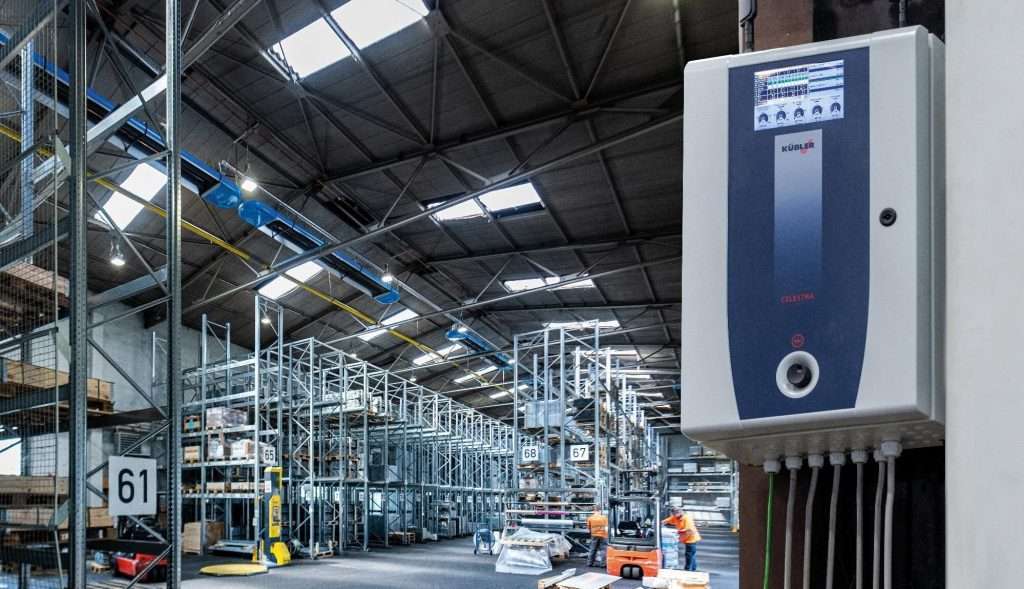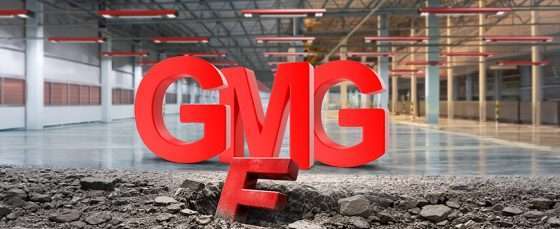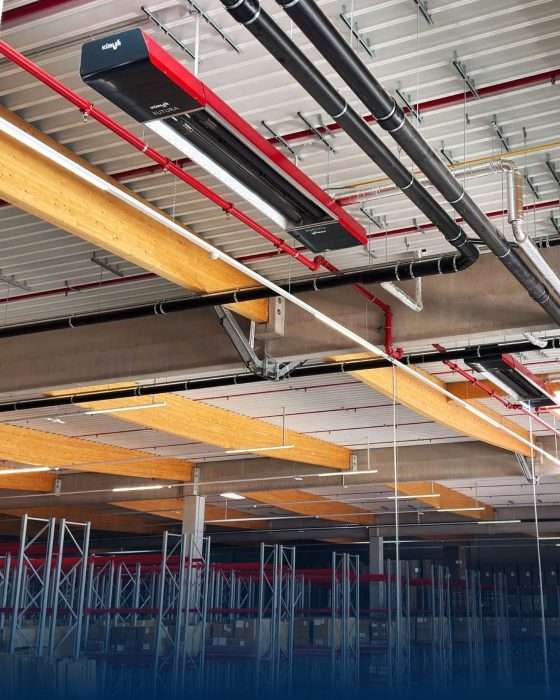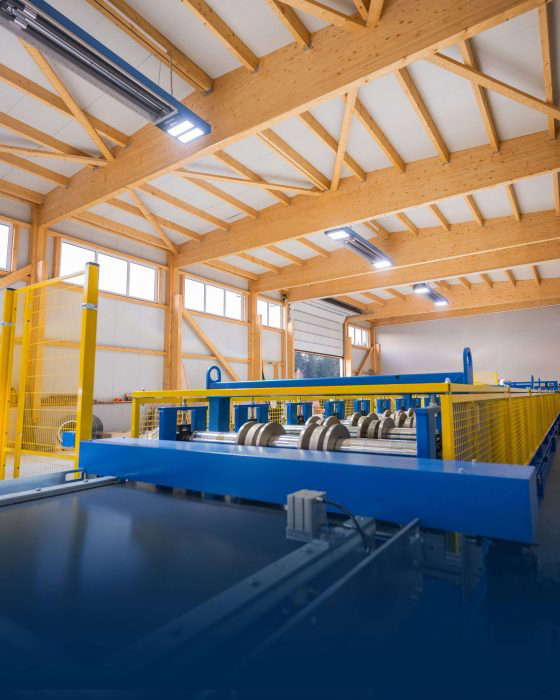How to regulate your hall heating during the Christmas break - and how to cleverly counter rising energy prices
December 17, 2025

The Christmas holidays are approaching surprisingly quickly once again—and unfortunately, so are a few challenges. These range from excessive heating costs to the European Energy Performance of Buildings Directive (EPBD). Congratulations if you have already converted your hall heating to an economical system from KÜBLER. This is a really good decision in many respects, especially if your hall heating is primarily gas-powered.
While industrial electricity prices are expected to fall as a result of subsidy measures, gas prices are expected to rise significantly in 2026. This is primarily due to rising grid fees and a volatile supply situation caused by geopolitical risks.
This makes saving energy all the more important. Here are three important expert tips for you:
- Take a close look at the operating times of the hall heating systems and check whether the shift times are still synchronized with the heating times. Every hour of heating that you can save during normal operation is really worthwhile given the high prices.
- Clarify vacation operation during the festive period in good time and use the "Holiday operation" setting on your control unit. You can regulate the heating system down to 8 °C during the Christmas break, provided your general conditions allow this. This temperature is sufficient to ensure that the building does not cool down completely and that the operating temperature can be reached again quickly if required. You can already make the settings for Christmas and the other holidays now.
- Switch back to normal operation at the weekend before starting work. The system will run at the setback temperature according to your settings and resume normal operation on Monday.
Depending on the size of your system, reducing the temperature will save you several thousand euros. A sum that you can certainly budget for in the coming financial year. Perhaps even to celebrate with your employees and raise a glass to the New Year?
If you need help with the settings and have any questions, we will be happy to help you. And if you would like to find out more about temperature reduction and the possibilities of modern heating control, simply contact us. Contact us with us.
☆ We wish you a blessed Christmas season and a happy and successful 2026! ☆
Everything you need to know about energy-saving hall heating systems in practice
Saving energy is a big issue - across all sectors. If you want to put an end to inefficient heating systems, our guide is just right for you!
Request a free guide
You might also be interested in
-
The German government is sticking to its goal of climate neutrality by 2045. The GMG is to come into force on 01.07.2026. The EU Buildings Directive (EPBD) will be implemented 1:1, making full use of national leeway. The requirements of the Heating Act (GEG §§ 71-71p) will be deleted. The obligation to operate new heating systems with at least 65 % renewable energy will no longer apply to new and existing buildings. Technology openness: Owners [...]
-
Germany has a huge number of buildings whose heating systems waste energy every day and produce far too much CO₂. With regard to the use of renewable energies and modern technologies, it is by no means just an old stock that urgently needs to be refurbished. Many newly built halls are also equipped with outdated [...]
-
Mr. Kübler, your company produces heating systems for halls. These only make up a small proportion of all buildings in Germany. Why is it nevertheless important to save as much energy as possible in this area? That's right, halls only make up around 1.5 percent of all buildings in Germany, so most people don't notice them. Even [...]
-
What is a dark radiator (really)? In everyday life, the term "dark radiator" is often used interchangeably with infrared radiant heaters. It is also often used to refer to electric infrared heaters. People even talk about electric dark radiators. From a technical point of view, however, this is not really correct. Dark radiators in the true sense of the word are gas-powered infrared heating systems that bring heat into halls in a particularly efficient way. To do this, […]





